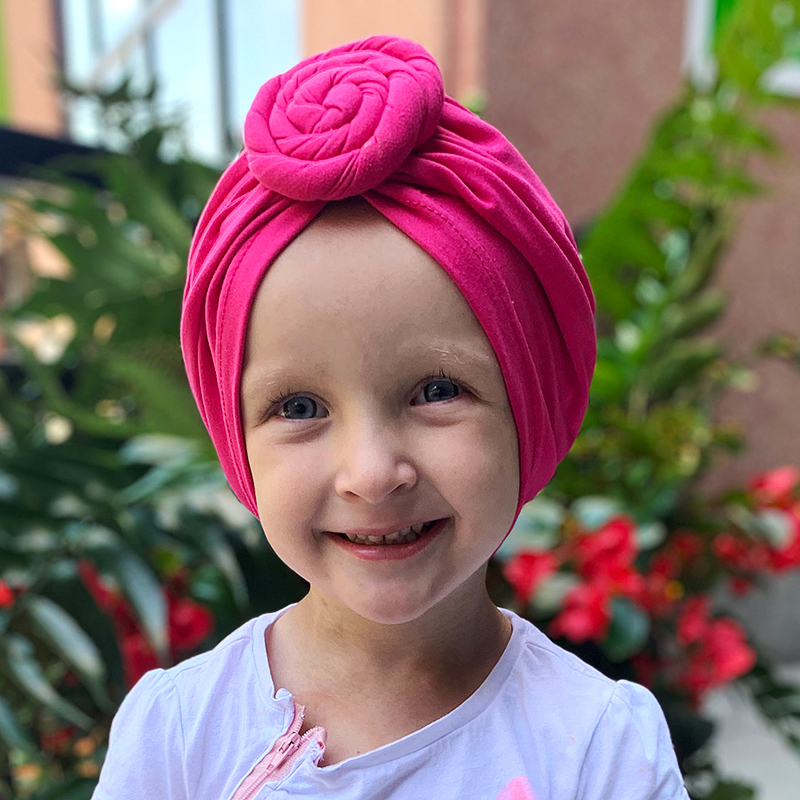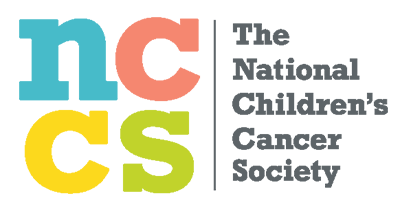Meet Isabella – Rhabdomyosarcoma Warrior

"The National Children's Cancer Society has been there for our family and we would like to share with any family who is in need of help through their journey… don't be discouraged to reach out."
At 3 years old, Isabella is like most kids in many ways. She loves to be outside and rides her bike whenever she can. She loves to play with her baby dolls and train sets. Her favorite movie is Toy Story 3 – a movie the whole family enjoys watching together. And she’s looking forward to being a big sister in December. Her mom, Savannah, is looking forward to it too. “With her love for babies, I know she will be an amazing sister,” Savannah said.
But there’s one big way that Isabella is different from other kids her age. This amazing little girl is battling embryonal rhabdomyosarcoma, a cancer most often affecting the soft tissue of children under 5 years old.
Savannah recalls the terrifying moment she knew something was wrong with Isabella. “In May of 2023 we noticed Isabella wasn’t acting herself. I thought she had a very upset stomach. She wouldn’t get off the floor to play with toys and could barely walk, and she was crouched over if she did get up,” Savannah said. “The morning I brought her in (to the hospital) she was lying in bed and wouldn’t move.”
Savannah knew something wasn’t right, but she couldn’t have predicted what would come next. “Our local hospital did an ultrasound and told us to drive an hour out to another hospital where they could do a CT scan to get better results,” she said. After many long hours and several tests, the doctor sat the family down and told them they had found a very large mass. Isabella would need to be flown to another hospital that was 5 1/2 hours away. It was there that the hospital team decided that Isabella’s road map for treatment would include surgery followed by 52 weeks of chemotherapy and 28 sessions of proton beam radiation.
The Challenges
Isabella’s tumor was attached to the belly button on the inside of her abdomen. The surgery to remove it was just the beginning of Isabella’s cancer journey. Savannah explained, “Since the diagnosis, Isabella has had some medical trauma. She has been very scared of doctors, nurses, and even the hospital rooms. But it has improved over time and she did get used to the routine of things, which has made it easier,” said Savannah. “She does still get night terrors, but they have gotten better. It has helped her a lot when we explained what will be happening throughout the day to get her prepared so she isn’t scared.”
Helping Isabella through her fears about the hospital has been challenging for her parents. But they’ve learned that the trials continue far beyond those fears. “Our biggest challenge has been the not knowing,” said Savannah. “We are still learning every day about her cancer, what works for her on a day-to-day basis. We always ask questions. And we are always open to new suggestions,” she said.
Thankfully, The National Children’s Cancer Society (NCCS) is able to help alleviate some of the family’s worries. Isabella is treated at two separate facilities – and neither is close to home. The family travels 540 miles round trip for one facility, and the other is a 768-mile round trip from home. The NCCS covers the transportation costs for these long drives. “The National Children’s Cancer Society has made an impact on our family, as we never thought the financial worries through this would be easy. Having a support system is so important throughout this journey,” said Savannah. “The National Children’s Cancer Society has been there for our family and we would like to share with any family who is in need of help through their journey… don’t be discouraged to reach out.”
The National Children’s Cancer Society is here for families who are living with childhood cancer. Isabella’s family is being supported by the NCCS’ Transportation Assistance Fund, which has helped the family cover the cost of gas to and from Isabella’s treatment facilities. We will continue to support their needs… Because no family should go through childhood cancer alone.™
